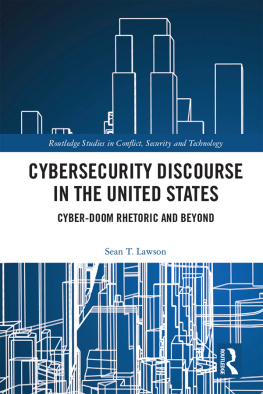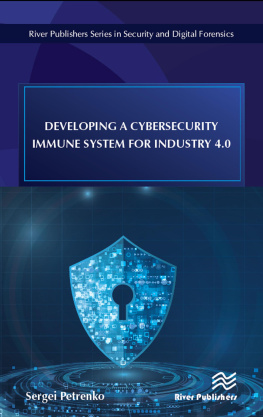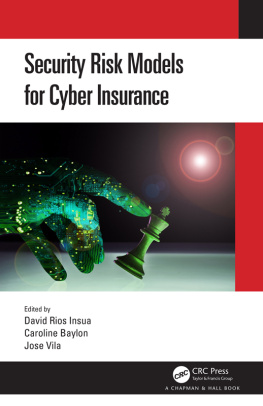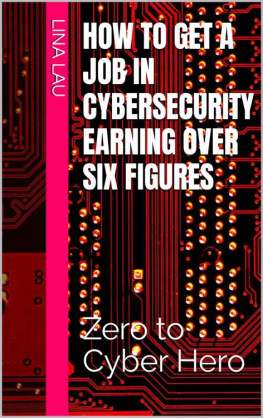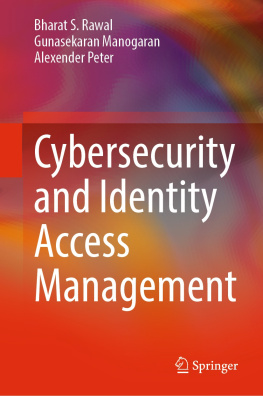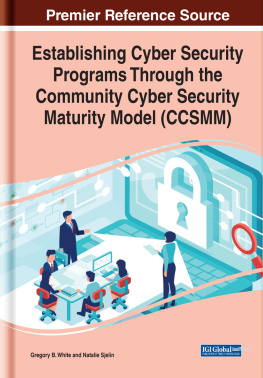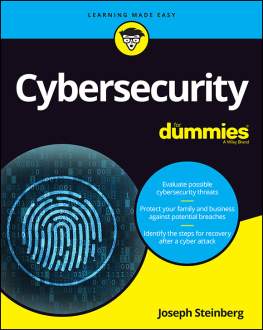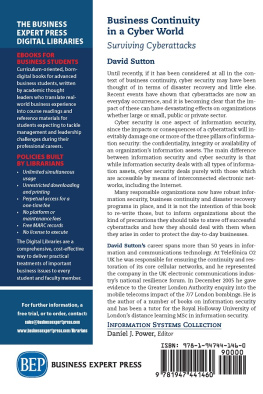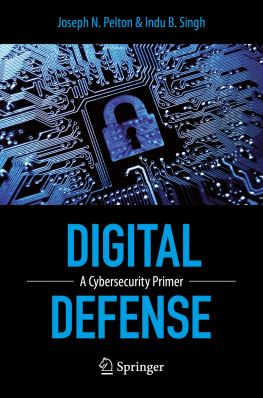Cybersecurity Discourse in the United States
This book examines the role of cyber-doom rhetoric in the U.S. cybersecurity debate.
For more than two decades, fear of cyber-doom scenarios i.e. cyberattacks against critical infrastructure resulting in catastrophic physical, social, and economic impacts has been a persistent feature of the U.S. cybersecurity debate. This is despite the fact that no cyberattack has come close to realizing such impacts. This book argues that such scenarios are part of a broader rhetoric of cyber-doom within the U.S. cybersecurity debate, and takes a multidisciplinary approach that draws on research in history, sociology, communication, psychology, and political science. It identifies a number of variations of cyber-doom rhetoric, then places them into a larger historical context, assesses how realistic the fears expressed in such rhetoric are, and finally draws out the policy implications of relying on these fears to structure our response to cybersecurity challenges. The United States faces very real cybersecurity challenges that are, nonetheless, much less dramatic than what is implied in the rhetoric. This book argues that relying on cyber-doom rhetoric to frame our thinking about such threats is counterproductive, and encourages us to develop ways of thinking and speaking about cybersecurity beyond cyber-doom.
This book will be of much interest to students of cybersecurity, foreign policy, public administration, national security, and international relations in general.
Sean T. Lawson is Associate Professor of Communication at the University of Utah and Adjunct Scholar at the Modern War Institute at West Point, USA.
Routledge Studies in Conflict, Security and Technology
Series Editors:
Mark Lacy, Dan Prince, Lancaster University
Sean Lawson, University of Utah
Brandon Valeriano, Cardiff University
The Routledge Studies in Conflict, Technology and Security series aims to publish challenging studies that map the terrain of technology and security from a range of disciplinary perspectives, offering critical perspectives on the issues that concern publics, business, and policymakers in a time of rapid and disruptive technological change.
Terrorism Online
Politics, law, technology
Edited by Lee Jarvis, Stuart Macdonald and Thomas M. Chen
Cyber Warfare
A multidisciplinary analysis
Edited by James A. Green
The Politics of Humanitarian Technology
Good intentions, unintended consequences and insecurity
Katja Lindskov Jacobsen
International Conflict and Cyberspace Superiority
Theory and practice
William D. Bryant
Conflict in Cyber Space
Theoretical, strategic and legal perspectives
Edited by Karsten Friis and Jens Ringsmose
US National Cybersecurity
International Politics, Concepts and Organization
Edited by Damien Van Puyvelde and Aaron F. Brantly
Cybersecurity Discourse in the United States
Cyber-Doom Rhetoric and Beyond
Sean T. Lawson
For more information about this series, please visit: www.routledge.com/Routledge-Studies-in-Conflict-Security-and-Technology/book-series/CST
First published 2020
by Routledge
2 Park Square, Milton Park, Abingdon, Oxon OX14 4RN
and by Routledge
52 Vanderbilt Avenue, New York, NY 10017
Routledge is an imprint of the Taylor & Francis Group, an informa business
2020 Sean T. Lawson
The right of Sean T. Lawson to be identified as author of this work has been asserted by him in accordance with sections 77 and 78 of the Copyright, Designs and Patents Act 1988.
All rights reserved. No part of this book may be reprinted or reproduced or utilised in any form or by any electronic, mechanical, or other means, now known or hereafter invented, including photocopying and recording, or in any information storage or retrieval system, without permission in writing from the publishers.
Trademark notice: Product or corporate names may be trademarks or registered trademarks, and are used only for identification and explanation without intent to infringe.
British Library Cataloguing-in-Publication Data
A catalogue record for this book is available from the British Library
Library of Congress Cataloging-in-Publication Data
A catalog record for this book has been requested
ISBN: 978-1-138-20182-8 (hbk)
ISBN: 978-1-315-50561-9 (ebk)
Typeset in Times New Roman
by Apex CoVantage LLC
For Everett, who reminds me what is most important.
This book would not have been possible without the advice and support of family, friends, and colleagues. First and foremost, I must thank my wife, Cynthia, for all of her support, including help working out my thoughts, editing, and general encouragement to keep going at those moments when I felt like giving up. I would also like to thank my friends and colleagues at the University of Utah and elsewhere who have been instrumental to the completion of this book. This includes Marouf Hasian, Robert Gehl, and Michael Middleton at the University of Utah. It also includes Brandon Valeriano of the Marine Corps University. Each of them provided invaluable advice and encouragement along the way. This book also benefited from feedback received by presenting portions of it to cybersecurity students at Northeastern University and researchers at the Center for Global Security Research at Lawrence Livermore National Laboratory. Thank you to Ryan Maness and Jackie Kerr for those respective invitations.
Finally, I would like to thank the publishers who have granted permission for me to build upon some of my previous work published with them. Portions of draw from Sean Lawson (2012), Putting the War in Cyberwar: Metaphor, Analogy, and Cybersecurity Discourse in the United States, First Monday , 17, 7.
The cyber sky is falling! An introduction to cyber-doom
Cyberspace, November 2012
In November 2012, viewers around the world were stunned when international news media reported what one network called a cyberterrorist assault on a major Western intelligence agency. Hackers broke into the agencys computer systems, manipulated its heating, ventilation, and air conditioning (HVAC) system to cause a natural gas leak, and then used that leak to blow up a portion of the building. In all, six were killed and many more were injured.
But this dramatic incident was actually the latest salvo in a cyber conflict that had already been raging for weeks. A disgruntled former intelligence operative had managed to steal a trove of highly classified information from the agency, in particular the names of every undercover NATO intelligence agent serving in terrorist organizations around the world. This insider-turned-cyberterrorist vowed to release the names of five agents per week on YouTube, a promise on which he ultimately made good, leading to the death of at least three agents, one of which was videotaped and posted online.
In the ensuing response to what many called the greatest internal security breach ever, government intelligence agents always seemed one step behind. Indeed, for a time, the government was unable to solve the attribution problem as the cyberattacker used an anonymity network to route his computer traffic all over the globe, making identification and geo-location of the attacker almost impossible. Although the government was ramping up a global manhunt, it did not at first even know who it was hunting, which led to increasing criticism and public embarrassment. Whats more, while the government seemed to chase shadows around the globe, the hacker continued to break into government computer systems with impunity, to carry out the kinetic cyberattack mentioned earlier, and even to carry out other cyber-kinetic attacks, including one that derailed a subway train.

